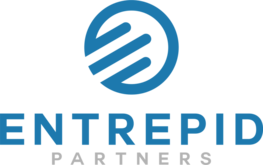Why you have to focus on the customer to be successful in sales
One of the core tenets of B2B sales is qualification, which is the single most important part of the sales process. Put simply, qualification is the act of understanding a prospective customer’s needs and determining whether your product or service is right for them (and whether they’re the right customer for you).
But the truth is that even though qualification is so important, most salespeople are really bad at it! All too often, they go into the call unprepared and ask questions off the cuff. Most salespeople don’t use a framework or methodology to qualify, don’t approach each call in a uniform way, don’t ask elegant open-ended questions, don’t listen very well, and don’t drill down on topics or processes that could really help them position their product. What’s worse, they don’t focus their questions on the customer, which is the key to understanding whether there’s a fit.
A rushed qualification process leads salespeople to prematurely consider deals qualified that actually are not — which wastes both time and money.
So what’s the right approach? Your next step might be to look for a framework, which can be a huge help in preparing for and executing good qualification. But many classic sales frameworks like BANT (Budget, Authority, Need, and Timeline) and MEDDIC (Metrics, Economic Buyer, Decision Criteria, Decision Process, Identify Pain, and Champion) are not great for early-stage startups because they tend to focus on organizations selling mature products.
So we developed our own method called CONSULT to help guide early-stage startup founders and salespeople through those initial conversations to land game-changing deals.
The CONSULT method breaks down the qualification stage into its seven most important elements:
- C: Current process
- O: Ongoing challenges and pain
- N: Needs and product requirements
- S: Success criteria
- U: Understanding of the evaluation process
- L: Leadership involved in making the decision
- T: Timelines and priority
For each of these, it’s essential to ask open-ended questions that focus on the customer to give you the information you need to understand their needs, where the deal stands, and how to push it forward. This post gives examples of what kinds of questions to ask for each element of the CONSULT method.
